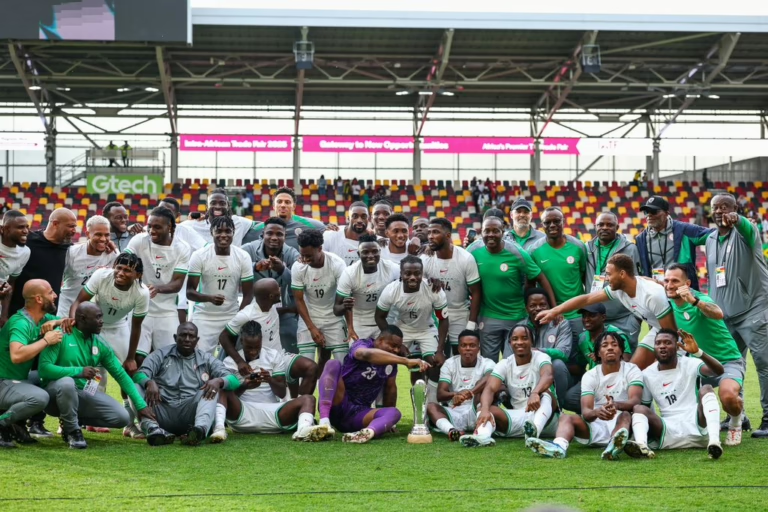Ex-Super Eagles Captain Warns of Massive Economic Loss if Nigeria Misses 2026 World Cup
Sylvanus Okpala, former captain of Nigeria’s Super Eagles, has expressed grave concerns about the significant financial repercussions Nigeria could face should the national team fail to secure a spot at the 2026 FIFA World Cup, scheduled to be hosted across the United States, Canada, and Mexico.
Economic Stakes: Over $100 Million at Risk
Okpala, who earned more than 40 caps for Nigeria, emphasized that missing out on the World Cup would not only be a sporting disappointment but also a major economic setback. He estimates that Nigeria stands to lose upwards of $100 million in revenue, affecting various sectors including sponsorships, broadcasting rights, merchandise sales, and tourism.
“The financial impact of failing to qualify is enormous,” Okpala stated in a recent interview with The Guardian. “Beyond the pride of representing our nation, the World Cup generates business opportunities that ripple through our economy.”
Lessons Unlearned: Nigeria’s Struggles in World Cup Qualifiers
Despite Nigeria’s rich football heritage, including three Africa Cup of Nations (AFCON) titles, the team has struggled in recent World Cup qualification campaigns. The Super Eagles missed the 2022 World Cup after a surprising defeat to Ghana, a bitter rival. Currently, six matches into the 2026 qualifiers, Nigeria has managed only one victory, placing their qualification hopes in a precarious position.
Okpala criticized the current coaching setup under Eric Chelle, suggesting that the team has yet to address critical weaknesses. “We lost the Qatar 2022 spot due to complacency. We simply could not afford to lose to Ghana,” he remarked, highlighting the need for strategic improvements.
Okpala’s Offer to Assist and the NFF’s Response
Drawing from his experience as part of Stephen Keshi’s coaching staff during Nigeria’s 2013 AFCON triumph, Okpala offered his expertise to the Nigeria Football Federation (NFF) to aid Chelle’s team in the qualification process. However, his proposal was declined.
“I reached out to the NFF, willing to help without demanding a salary-only camp allowances with a bonus upon qualification. Unfortunately, my offer was ignored,” Okpala revealed.
He remains cautiously optimistic, noting that while Nigeria’s fate is no longer entirely in their hands, qualification is still achievable if the team wins their remaining matches.
Critique of CHAN Performance and Player Selection
Okpala also voiced strong criticism of Nigeria’s early exit from the African Nations Championship (CHAN), attributing the failure not to the quality of the Nigerian Premier Football League (NPFL) but to poor player selection and preparation.
“Some blame the NPFL’s quality, but that’s misplaced. Senegal won the last CHAN, yet their league isn’t superior to ours. The issue lies in choosing the right players and adequately preparing them,” he explained.
He pointed out that even top European leagues with world-class players have faced challenges in international tournaments, underscoring that league quality alone does not guarantee success.
Upcoming Crucial Fixtures and Coaching Pressure
With critical qualifiers against Rwanda and South Africa looming in September, the pressure mounts on Eric Chelle and his coaching staff. Failure to secure points in these matches could jeopardize Chelle’s position as head coach.
Okpala concluded with a call for a thorough reassessment of training methods and team management to prevent future disappointments. “If no home-based players make the World Cup squad, then Chelle’s extended work with local talents was ineffective,” he asserted.
Looking Ahead: The Road to the 2026 FIFA World Cup
As Nigeria battles to reclaim its place on football’s biggest stage, the stakes extend beyond the pitch. The nation’s footballing future and economic benefits are intertwined, making every qualifier match a critical juncture. Fans and stakeholders alike hope that lessons from past failures will fuel a renewed drive toward success.























0 Comments